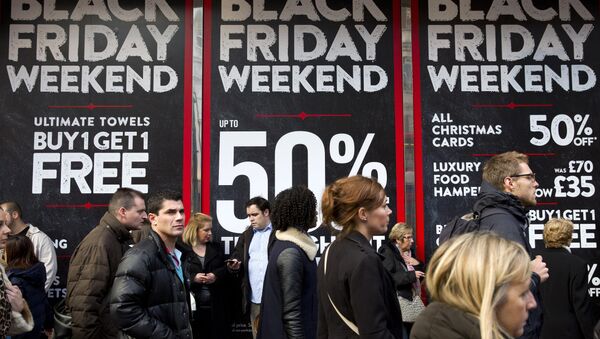Kristian Rouz – Massive holiday sales on 'Black Friday' across the globe mostly failed to provide substantial support to the retail sector in most economies, as reflected by stocks dynamics in the open market, even though consumer confidence in the US, Eurozone and Japan is solid. The disinflationary tendencies and lending squeeze in major economies have taken their toll, leaving investors largely skeptical of the retail outlook.
Most prominently, Macy’s and Nordstrom have both disappointed their shareholders, with the former’s stock plummeting 39 percent so far this year, while the latter’s equities dropped 22 percent due to weak consumer demand.
'Black Friday' sales failed to improve the situation as not as many shoppers showed up at the counters as were supposed to be. Holiday crowds besieged the low-end segment of retail sector as low-income citizens were taking their chances at getting things cheap. On the contrary, wealthier customers were wary of holiday discounts.
"You really have to bifurcate between the largely apparel retailers and hard-goods retailers," Anthony Chukumba of BB&T Capital Markets said.
While fashion clothing segment is struggling, online shopping is expanding rapidly. The S&P 500 retail segment added 27 percent for the year largely due to a twofold surge in Amazon stock. Middle-income consumers are gradually switching to online shopping, while the influx of money in traditional shops is drying out.
According to data by the US Department of Commerce, US retail inched only 0.1 percent up in October after zero gains during the previous two months.
Weak inflation is another factor. While low-income consumers are discount hunting for basic things, a larger portion of shoppers are viewing the sluggish advance in prices as a reason enough to postpone more substantial purchases. Ever since 2008, the retail performance on 'Black Friday' has been weakening each consecutive year.
Even Wal-Mart fluctuated between gains and losses during holiday seasons during the past three years, despite the consumer hysteria portrayed by the media.






